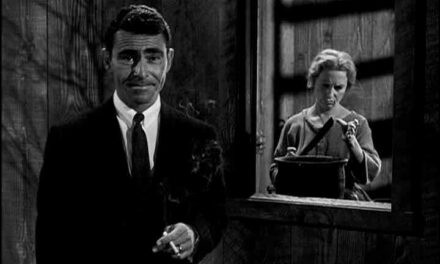For Mel
This is our ‘experiment’ together – watching an entire season of The Vikings in two dreamy sittings – the late eve of a romantic Saturday and the full span of an Autumn Sunday. Our new relationship is blossoming and we are hopeful where it may take us. But how will we fare together binging on blood and betrayal, and the pagan winds of long, long ago?
Tonight and tomorrow, we are romancing with the Vikings…
There are many reasons that account for the appetites involved in ravenous television viewing. A hectic and crowded life, full of irregular patterns, pastimes and important events, can draw us towards the necessary pleasures of one extended sitting of a must-see or favourite series or serial.
A break up, a dose of the black dogs, the wintry winter setting in, can call on us to binge on that which will offer an escape, a release, to a world less beige than ours; to a space more enchanted than here and now, and to a fictive place that is more or less hopeful but always comprehensible.
We tell ourselves that when we come out the other side all will again be well in the world or things that ached won’t matter quite as much. The intimacy of the binge is also about creating distance from real life as it is presently encountered.
We lie back on the couch, entwine our bodies, hold hands. We sip on wine. Outside, the moon rises on a starry night and over a quiet street. We press play and the shimmering, sublime title sequence fills the screen, the room. Waves crash, figures drown, fire and ash rise up, lightning strikes, clouds brood, flesh rips, an incantation amplifies the montage, and an Eagle eye lands upon our faces. You look so very beautiful, tonight. Just one more.
VIKINGS OPENING TITLE SEQUENCE from Rama Allen on Vimeo.
We binge on programmes that have ensnared us with their imaginations, characters, and stories. These are deliciously pleasurable negotiations – like a cake we cannot help but devour, the programme has to be consumed in one giant mouthful.
We hunger for programmes that have become part of everyday conversation and gossip. To binge is to be part of the social world, the fabric of mediated revelation. Friendship and group connectedness gather around the kettle-fires of binge television. Around offices, lunchrooms, and such places, in the agora of the social media, people mutter and chatter, text and post, ‘I did not see that coming’.
We begin to quietly talk the programme as we watch, pressing pause now and then to review or to ‘hear’ something again. We begin to predict character deaths, and plot developments. I notice the sublime in the fjord and mountain pillow shots. She describes the earthy and natural palette painting the scenes full of fecundity but also death. The crosscutting between birth and renewal and death and demise move through our fingers as we kiss and rug up. Just one more.
The binge grapevine oscillates and pirouettes around spoilers, plot twists, revelations and surprise, which in turn become the currency of exchange – the binge both an attempt to warn off the exterior chatter and to engage in it, to be at the centre of the corridors of discourse while pretending not to hear all that has been said. Minor points became major ones, and the sharing of trivia one of the ways the programme gathers its wider discursive, pleasurable power.
She whispers, Travis Fimmel’s eyes are beyond earthly blue. We Google him and his Adonis-like Calvin Klein adverts lead the results. What a body. We laugh. I am feeling a tad inadequate. Just one more, please….

There are not just textual, generic, and social dimensions to the hungriness of television viewing, however. And the temporal dimensions are not simply to do with condensing eight or nine weeks of viewing into 9 or more hours of watching. When just one more becomes just one more again, the span of the day is recast and the super dimensions seep into the lived-in experience one is enmeshed in.
Linear time becomes time thickened, outside becomes inside, the world slows down and yet accelerates. The sun that rises on the flame trees in the back garden is not the one that now ignites your searching, smiling brown eyes.
Neo-liberal time becomes meaningless when just one more becomes just one more again, and where the power of and in romance conquers all before it.
She cooks me lunch – something she does for no one. We eat, our bodies close and touching. We have shared favourite characters – we love the waywardness of Floki (our very own ‘Heath Ledger’) and the Sword Maiden Lagertha captures the femininity and feminism we believe in. We wish death on the king. Dust particles finely float in the air. A car’s horn beeps in the distance. I want to be nowhere else in the world right now. Just one more.
When binge watching a series that is aired weekly, the prologue loses its significance, while the ‘taster’ of what is to come partly interrupts the intimacy that one is establishing as one views the show. In some respects, binge television viewing asks of us to watch as it as a film – a piece of continuous narrative cinema – which we are engaging with. And yet, its inherent dramatic arcs and punctuation points render the series or serial, time and narrative hyper-sensitive. Both compression and extension heat and cool the fibres of the television binge.
The last episode draws to a close but I don’t want it to. Not ever. Time and space has been enchanted in the arc and architecture of these 20 hours or so. Our relationship has been thickened. Pillow shots will fill our memories. My head rests on her chest; she runs her fingers through my hair. I know she is smiling. We have been romancing the Vikings.
While we can and should develop a set of explanations for binge viewing, and one that includes the economics of it – from the new net providers seeking market share, the illegal downloading of an entire series, to the purchase of parcelled box sets that become holy relics of consumption – it is the micro stories that matter most to me.
For me, it is in the how, when and why our biographies, our lived experiences – these incandescent moments in time – wrap themselves around our media content which gets us to the heart of the viewing matter.
Just one more, again.
Sean Redmond is an Associate Professor of Media and Communication at Deakin University, Melbourne, Australia. He writes on stardom and celebrity, science fiction, screen aesthetics, and authorship. His latest book is The Cinema of Takeshi Kitano with Columbia University Press (2013).
Sean Redmond, Deakin University, Melbourne: s.redmond@deakin.edu.au




